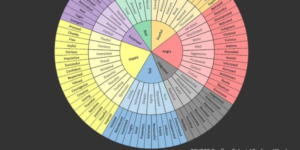Market research is a critical pillar of contemporary business strategy. It involves the systematic collection, recording, and analysis of data related to consumers, competitors, and the overall market environment. The insights derived from market research enable organisations to understand not only what consumers want, but also why they want it, how they behave, and how best to meet their needs. Effective market research contributes to a range of organisational outcomes, from product development to branding, pricing, and promotion, making it an essential tool for sustainable competitive advantage (Malhotra, Birks and Wills, 2021).
Understanding Consumer Behaviour
One of the foremost objectives of market research is to understand consumer behaviour — a term that encapsulates the decision-making processes individuals or groups undertake in selecting, purchasing, using, or disposing of products and services. According to Kotler, Armstrong and Opresnik (2020), consumer behaviour is shaped by a complex interplay of cultural, social, personal, and psychological factors.
Surveys and focus groups are commonly deployed to gather data in this area. Surveys are effective for obtaining quantitative data about consumer demographics, preferences, and purchase habits. They offer the advantage of scale, enabling researchers to collect data from a large number of respondents. Focus groups, by contrast, allow for qualitative insights, capturing the attitudes, perceptions, and emotions of consumers in a more interactive setting (Krueger and Casey, 2015). These methods offer complementary perspectives, combining statistical reliability with rich contextual understanding.
Understanding why consumers choose one product over another, how they form brand loyalties, or what price points they find acceptable allows businesses to tailor their strategies accordingly. For example, a company entering a new market may conduct exploratory research to determine local preferences, adjusting its marketing mix based on insights gathered (Malhotra et al., 2021).
Competitive Analysis
Another important dimension of market research is competitor analysis. Knowing the strengths and weaknesses of competitors allows firms to identify opportunities for differentiation and innovation. As Wilson (2014) notes, competitive intelligence can reveal gaps in the market or inefficiencies in competitors’ strategies that can be capitalised upon.
This aspect of market research often relies on secondary data sources such as competitor websites, industry reports, and financial statements. By analysing these sources, businesses can benchmark their performance, pricing strategies, distribution channels, and promotional tactics against rivals. Kotler et al. (2020) stress the importance of SWOT (Strengths, Weaknesses, Opportunities, Threats) analysis in strategic planning, which is typically underpinned by thorough competitive research.
For instance, a small e-commerce company may track competitors’ website traffic and social media engagement to evaluate their market position and customer engagement strategies. This analysis can inform the firm’s own branding, UX design, and promotional offers.
Market Trends and Forecasting
In today’s volatile economic landscape, the ability to anticipate changes is essential. Market research is instrumental in identifying and analysing market trends — long-term movements in consumer preferences, technological innovation, or regulatory frameworks. Bradley (2013) argues that businesses must not only understand current consumer demands but also anticipate future shifts to remain competitive.
Trend analysis can highlight emerging customer segments, lifestyle changes, or environmental concerns that may influence purchasing decisions. For example, the increasing focus on sustainability has led many firms to explore eco-friendly packaging or carbon-neutral logistics.
Forecasting, which relies on historical data and statistical modelling, enables businesses to make informed predictions about future demand, pricing trends, or product life cycles. Data visualisation tools and predictive analytics software make it easier for decision-makers to interpret complex datasets and plan accordingly (Hair et al., 2019).
For example, a clothing retailer may analyse three years of seasonal sales data to forecast inventory needs, thereby reducing stockouts or overproduction.
Methodologies in Market Research
Market research methodologies can be broadly categorised into primary and secondary research.
Primary Research
This involves gathering new data directly from respondents and is tailored to specific organisational needs. It can be qualitative (e.g. interviews, focus groups) or quantitative (e.g. structured surveys, experiments). According to Malhotra et al. (2021), primary research offers high relevance and accuracy but may be time-consuming and costly.
For example, a mobile app developer may conduct usability tests and in-app surveys to learn how users interact with the product and identify usability issues.
Secondary Research
This involves analysing existing data from previously published sources such as government publications, academic journals, or industry databases. While more economical, secondary research may not always fully align with the research problem at hand. Nonetheless, it is often used as a starting point for defining the research scope (Wilson, 2014).
For instance, a market entry feasibility study may begin by reviewing demographic data and consumption patterns from national statistics.
Surveys
Surveys are among the most accessible and scalable tools in market research. They can be administered in multiple formats — online, in-person, by phone, or post — and can include both closed- and open-ended questions. Their primary strength lies in collecting quantitative data about consumer behaviours and preferences (Malhotra et al., 2021).
Surveys allow researchers to analyse trends across large groups using statistical tools such as correlation or regression. For example, a product satisfaction survey may reveal a correlation between delivery speed and customer loyalty, guiding logistical improvements.
Focus Groups
Focus groups are used to explore consumer attitudes, motivations, and beliefs in depth. According to Krueger and Casey (2015), they provide a dynamic environment where participants respond not only to the moderator but to each other’s opinions, leading to richer discussions. This method is particularly valuable in the early stages of product development or brand positioning.
For example, a cosmetics company might use focus groups to understand emotional responses to packaging design or to test new advertising messages before launching a campaign.
Data Analysis and Interpretation
Data collection is only part of the research process. The ability to analyse and interpret data effectively is crucial for turning raw numbers into actionable insights. Techniques such as regression analysis, cluster analysis, and factor analysis help researchers understand relationships between variables and segment customer bases (Hair et al., 2019).
Modern market research often employs analytics software like SPSS, SAS, or Tableau. These tools facilitate advanced modelling and visualisation, allowing businesses to derive insights with greater precision and speed.
In an increasingly competitive and customer-centric market environment, market research is not a luxury — it is a necessity. It provides the empirical foundation upon which informed business decisions are made. From understanding consumer behaviour and analysing competitors to forecasting trends and evaluating marketing effectiveness, market research underpins virtually every aspect of strategic planning.
By using a mix of qualitative and quantitative methods — including surveys, focus groups, and statistical analysis — businesses can make smarter, evidence-based decisions. As markets become more dynamic and consumers more discerning, the role of rigorous, ethical, and ongoing market research will only continue to grow in importance.
References
Bradley, N. (2013) Marketing Research: Tools and Techniques. 3rd edn. Oxford: Oxford University Press.
Hair, J. F., Black, W. C., Babin, B. J. and Anderson, R. E. (2019) Multivariate Data Analysis. 8th edn. Andover: Cengage Learning.
Kotler, P., Armstrong, G. and Opresnik, M. O. (2020) Principles of Marketing. 18th edn. Harlow: Pearson Education.
Krueger, R. A. and Casey, M. A. (2015) Focus Groups: A Practical Guide for Applied Research. 5th edn. Los Angeles: SAGE Publications.
Malhotra, N. K., Birks, D. F. and Wills, P. (2021) Marketing Research: An Applied Orientation. 7th edn. Harlow: Pearson Education.
Wilson, A. (2014) Marketing Research: An Integrated Approach. 3rd edn. Harlow: Pearson Education.









